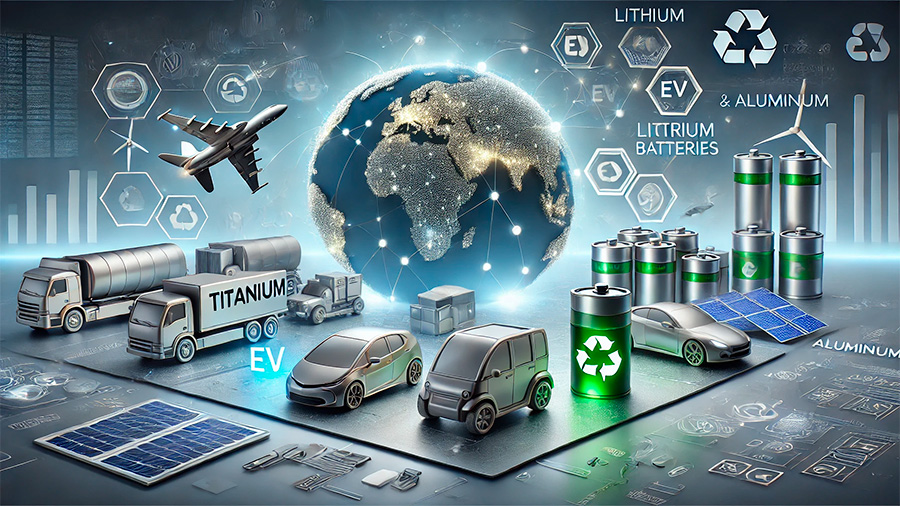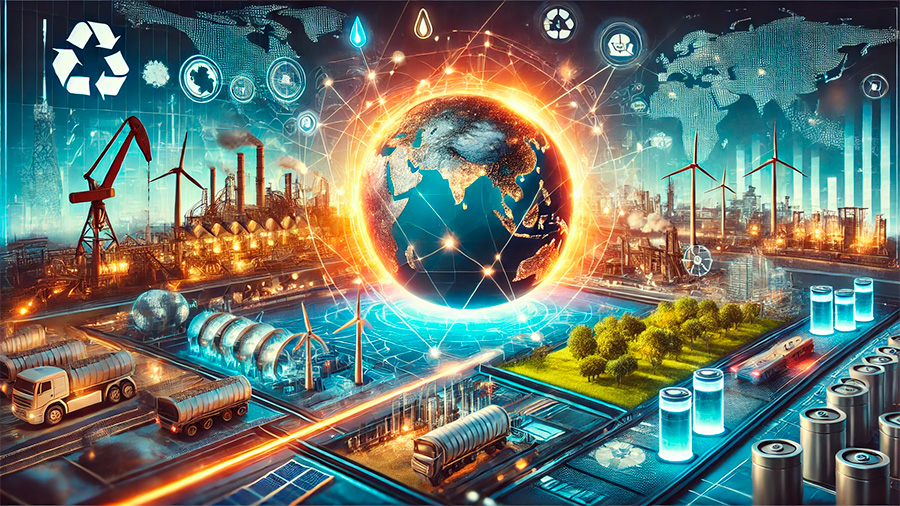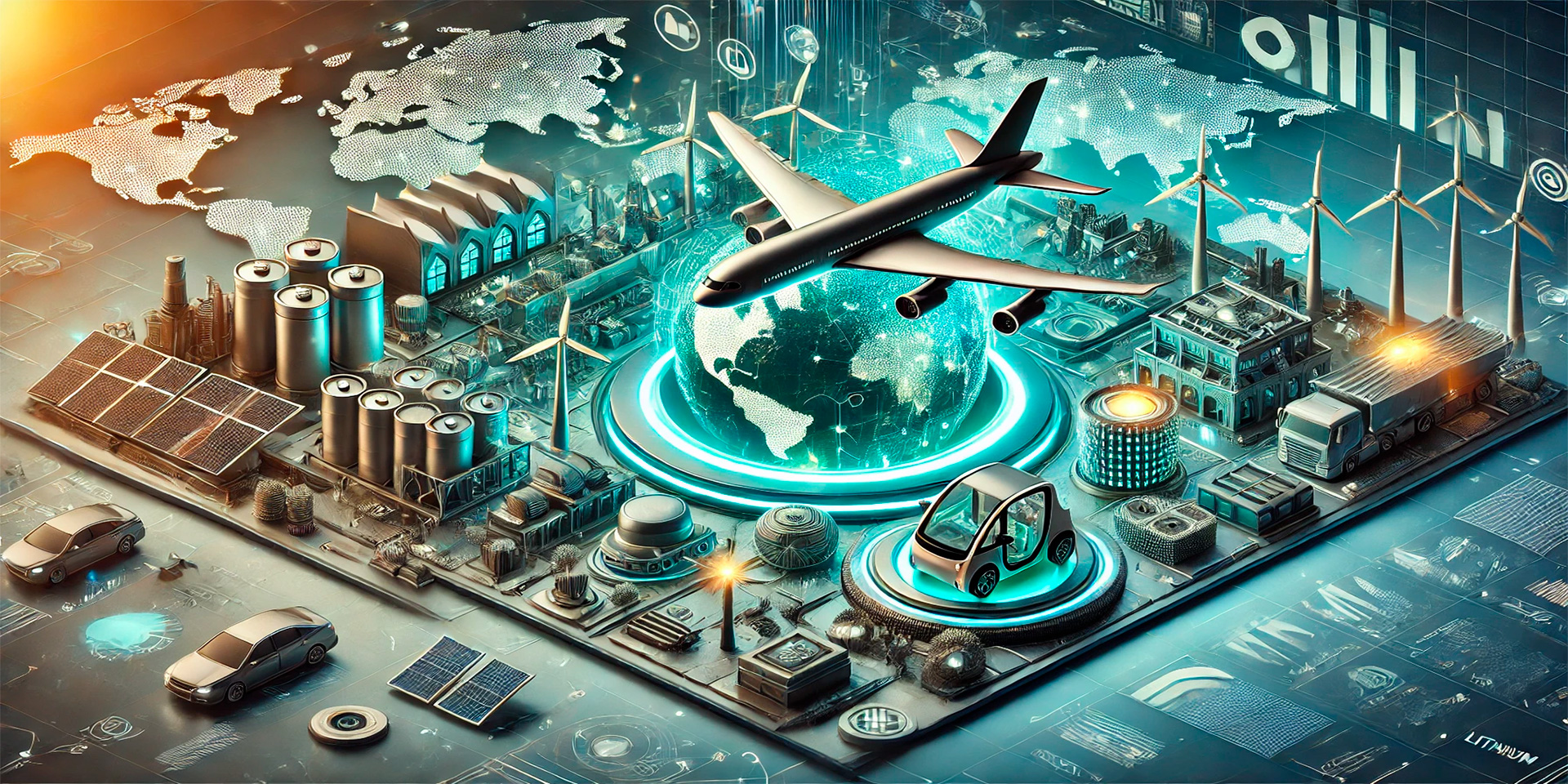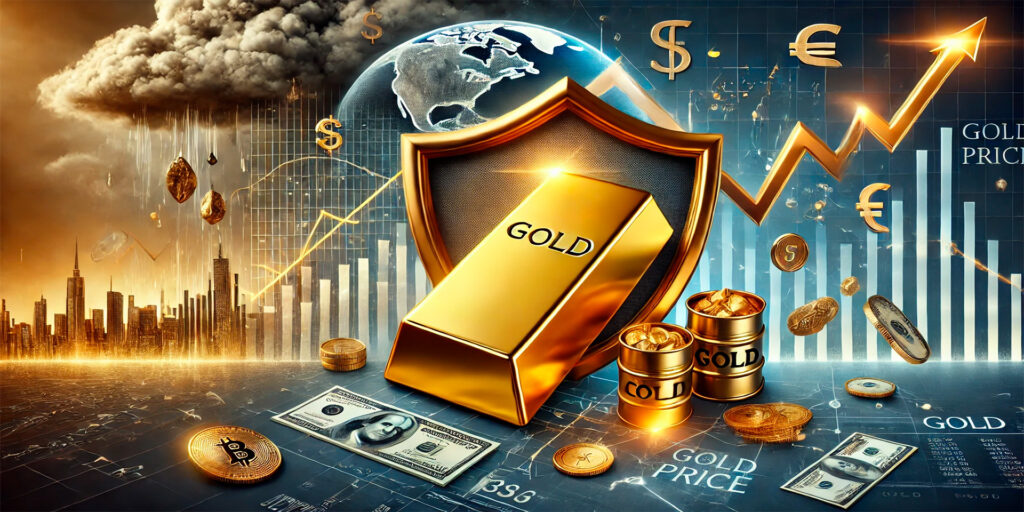As the global economy continues to evolve, the demand for strategic metals such as titanium, lithium, and aluminum is expected to grow significantly. These metals are not only essential for technological advancements but also play a pivotal role in shaping geopolitical strategies and environmental goals. In particular, industries like aerospace, electric vehicles, renewable energy, and manufacturing are driving the demand for these metals, making them key components in modern global policies. This article explores how titanium, lithium, and aluminum are influencing geopolitical dynamics, contributing to environmental sustainability, and driving technological innovation in the years to come.
The Role of Titanium, Lithium, and Aluminum in Global Policies
Titanium, lithium, and aluminum are among the most important metals in today’s economy, each serving a critical function in various industries. Governments across the world are increasingly recognizing the strategic value of these metals, implementing policies that encourage their production, regulate their use, and ensure their availability for key industries. The geopolitical importance of these metals is undeniable, with supply chains and access to raw materials becoming central to national security and economic stability.
1. Titanium: Key to Aerospace and Defense
Titanium is one of the strongest, lightest, and most durable metals, making it a critical material for the aerospace and defense industries. It is used extensively in aircraft components, military hardware, and even spacecraft. As demand for advanced technologies in aerospace and defense grows, titanium will continue to play a crucial role in global policies surrounding national security and technological advancement.
Strategic importance of titanium:
- Aerospace and defense: Titanium’s unique properties make it indispensable for the production of high-performance aircraft and military equipment. As global tensions rise, countries are focusing on ensuring a stable supply of titanium to support their defense capabilities.
- Supply chain security: As titanium is primarily mined in specific regions, governments are keen on securing access to titanium resources and establishing strategic trade partnerships.
- Technological advancement: Titanium is used in many emerging technologies, including renewable energy systems and medical devices, underscoring its importance in sustainable development and technological progress.

2. Lithium: Fueling the Green Economy
Lithium is often called the “new oil” because of its critical role in the production of batteries for electric vehicles (EVs), solar energy storage, and portable electronics. As the world transitions towards a more sustainable future, lithium has become a cornerstone of global environmental goals. Governments are increasingly implementing policies to secure lithium supplies, regulate its production, and support the transition to a green economy.
Strategic importance of lithium:
- Electric vehicles: The surge in demand for electric vehicles has significantly increased the need for lithium-ion batteries. Countries are incentivizing EV production and consumption, with lithium playing a central role in this transition.
- Renewable energy storage: Lithium is essential for battery storage solutions that enable renewable energy systems to store and distribute solar and wind energy more efficiently, making it a key player in global sustainability strategies.
- Geopolitical importance: With the majority of lithium reserves concentrated in countries like Chile, Argentina, and Australia, the geopolitical importance of lithium is growing. Governments are focusing on securing stable access to lithium resources to ensure energy security and economic growth.
3. Aluminum: The Metal of the Future
Aluminum is the most widely used non-ferrous metal in the world, primarily due to its light weight, strength, and versatility. It is used in a variety of applications, from construction and transportation to packaging and electronics. As global demand for sustainable and energy-efficient products rises, aluminum is increasingly viewed as a key material for reducing environmental impacts and advancing green technologies.
Strategic importance of aluminum:
- Transportation and manufacturing: Aluminum’s light weight and strength make it crucial for the production of vehicles, especially electric cars, which require lightweight materials to maximize energy efficiency. The aviation industry also relies heavily on aluminum for aircraft construction.
- Recyclability and sustainability: Aluminum is highly recyclable, making it an environmentally friendly material. Governments are increasingly promoting the recycling of aluminum as part of their efforts to reduce waste and carbon emissions.
- Global trade policies: The production and trade of aluminum are heavily influenced by government policies related to mining, manufacturing, and trade. Countries with large aluminum production capabilities, such as China, Russia, and Canada, shape global aluminum markets through their production and export strategies.

Geopolitical Strategies: How Global Politics Shape Access to Strategic Metals
The geopolitical importance of metals like titanium, lithium, and aluminum has prompted governments to implement strategic policies that secure access to these resources, often through international trade agreements, resource extraction deals, and research investments. Countries are increasingly focused on ensuring a reliable supply of these metals to support their national security and economic development, while also managing environmental concerns and technological innovations.
1. International Trade and Resource Security
The global demand for titanium, lithium, and aluminum is driving countries to develop new trade agreements and secure supply chains that minimize the risks of resource shortages. Nations with abundant supplies of these metals, such as Australia (lithium) and Russia (titanium), are emerging as key players in global trade, influencing international relations and policy decisions.
How global trade shapes metal access:
- Trade agreements: Bilateral and multilateral agreements are being forged to ensure the stable flow of critical resources like titanium, lithium, and aluminum between countries.
- Resource nationalism: Some countries have adopted resource nationalism policies, asserting control over their natural resources and limiting exports to preserve national interests.
- Supply chain diversification: To reduce reliance on a few key countries, nations are seeking to diversify their sources of these metals, investing in mining projects in new regions and fostering international cooperation.
2. Environmental Goals and Sustainable Mining Practices
As global demand for these metals grows, environmental sustainability has become a significant concern. Governments are implementing policies to ensure that mining practices do not harm the environment and that the extraction of these metals contributes to the global green economy. Regulatory frameworks and sustainable mining practices are being prioritized, focusing on minimizing carbon footprints and reducing waste.
How governments are addressing sustainability:
- Green mining initiatives: Governments are incentivizing the development of cleaner mining technologies that reduce environmental impact, promote energy efficiency, and minimize waste.
- Recycling and circular economy strategies: Aluminum and other metals are highly recyclable, and governments are encouraging the development of circular economies that reduce the need for raw material extraction through increased recycling and reuse.
- Carbon neutrality: In line with global climate goals, governments are setting ambitious targets for carbon neutrality, and the mining and production of metals like lithium and aluminum are increasingly required to align with these environmental goals.
3. Technological Innovation and the Future of Metal Production
Advancements in technology are enabling more efficient extraction, processing, and recycling of metals like titanium, lithium, and aluminum. Governments are investing in research and development to improve the sustainability and efficiency of metal production. This focus on innovation will continue to shape the global market and help ensure that these metals remain available for future generations.
Technological advancements driving metal production:
- Automation in mining: Automated mining techniques are improving safety and efficiency, reducing environmental harm, and increasing production rates for critical metals.
- Battery technology: Innovations in battery storage and energy efficiency are directly linked to the demand for lithium, as the development of better and more efficient batteries will drive growth in the electric vehicle and renewable energy sectors.
- Recycling technologies: Advances in recycling technologies, such as improved sorting and processing techniques, are helping to close the loop on aluminum production, making it more sustainable and reducing the need for raw material extraction.
Conclusion
Titanium, lithium, and aluminum are critical metals that will continue to shape geopolitical strategies, drive technological advancements, and support global environmental goals. As their importance grows in the production of advanced technologies, electric vehicles, and green energy systems, governments around the world will need to adopt policies that ensure secure access to these resources while promoting sustainability and innovation. By addressing the challenges of supply chain security, environmental impact, and technological progress, these metals will play a central role in shaping the future of global economies and markets.


